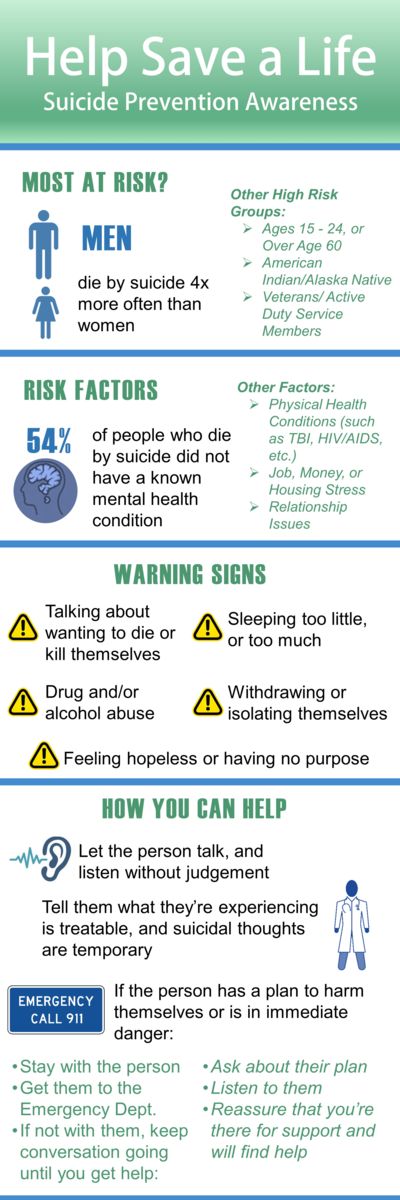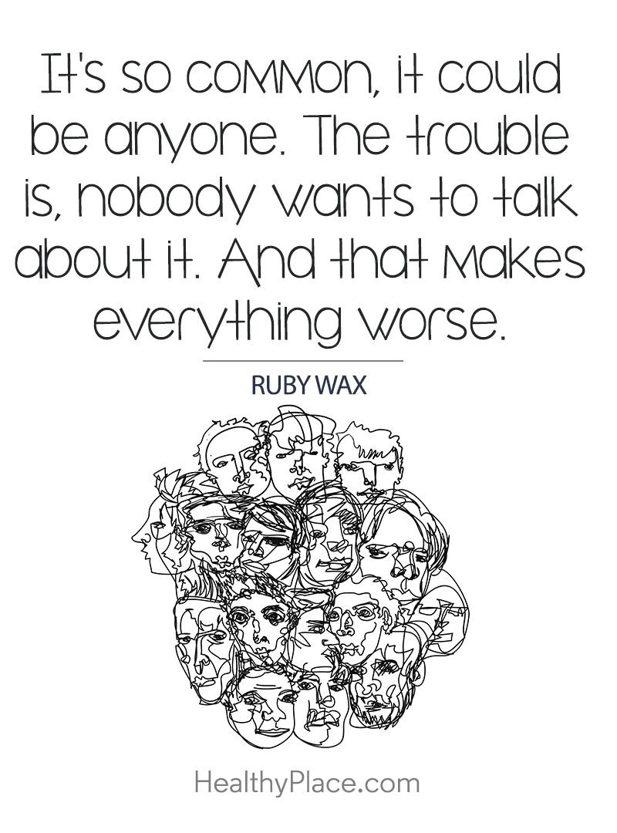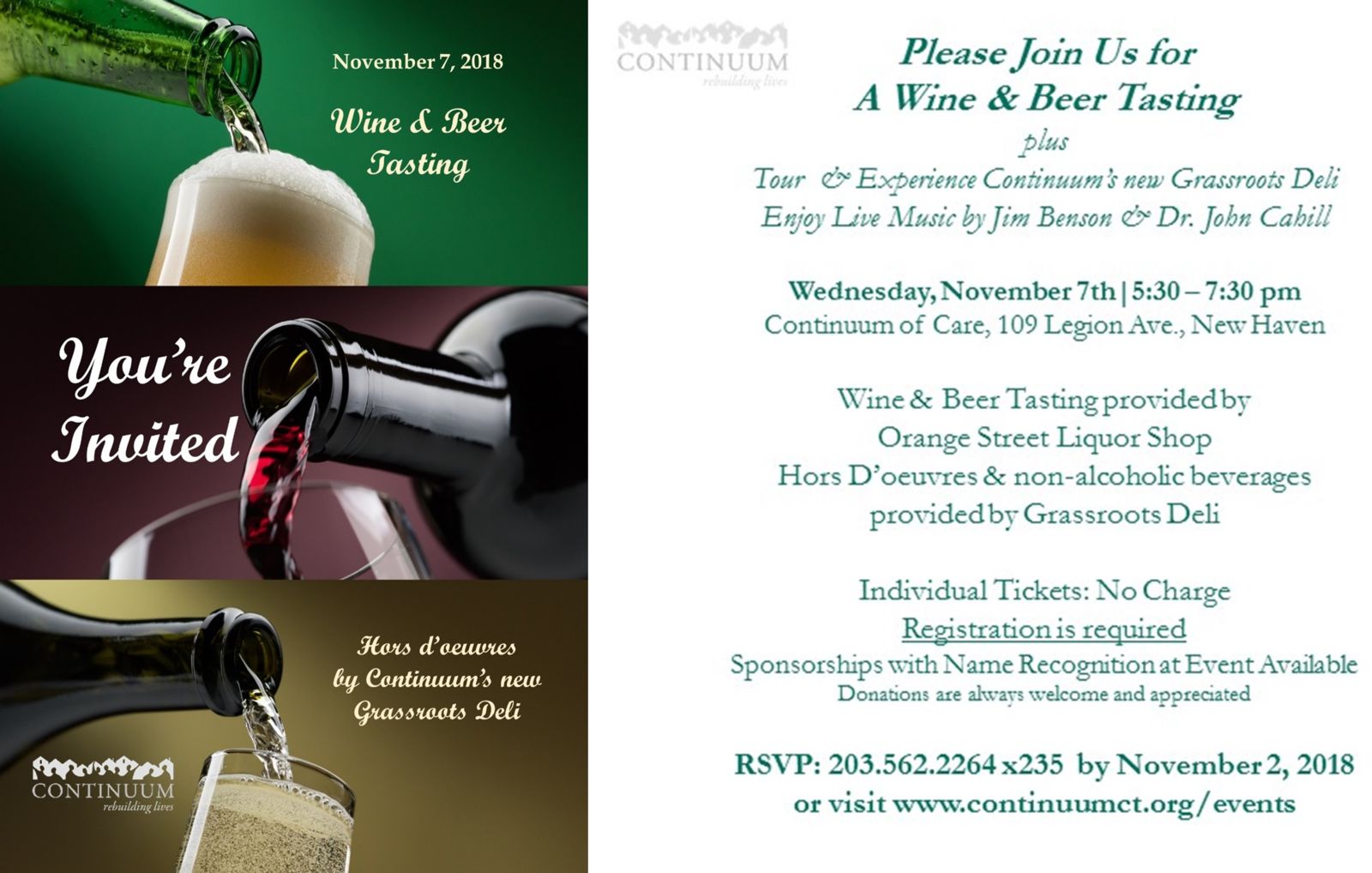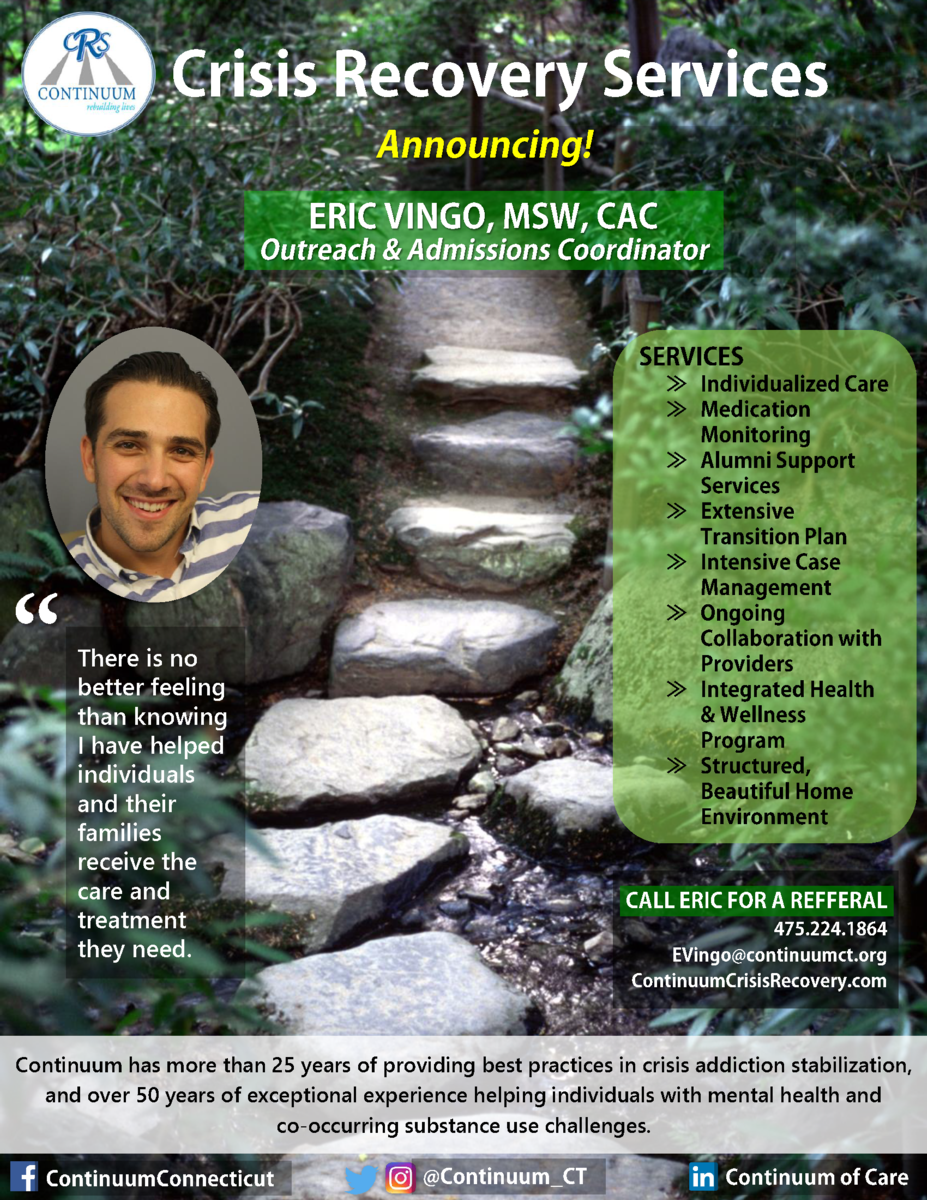October 2018 Newsletter: When in Crisis...
Wednesday, October 10, 2018
In This Issue
From Break to Breakthrough
First Episode Psychosis
Help Save a Life: Suicide Prevention Awareness
Continuum Events
Seeking Recovery for Mental Illness/Substance Use?
|
|
This year, Mental Illness Awareness Week (MIAW) runs from Sunday, October 7 through Saturday, October 13. Though mental health conditions affect 1 in 5 Americans, less than half seek treatment, often due to shame. Thus, this year's theme is 'CureStigma' to highlight the prevalence of these conditions and to promote compassion, understanding and more open dialogue about mental health year round. |

Tyler’s first psychotic break occurred at age 23. He was living in a drug rehab facility when alarming symptoms of anxiety, agitation, and paranoia emerged.
This was new for Tyler. Psychosis can often occur for the first time in late adolescence or early twenties, and it can be quite startling for the person and loved ones. To cope, he began to self-harm, even attempting to electrocute himself once.
Tyler had a history of jail time related to drugs, and was in solitary confinement during his prison stay due to behavioral issues. He also has a family history of suicide. His mother committed suicide 3 years ago. At a fairly young age, Tyler had already faced tremendous challenges.
Given Tyler’s challenges with substance use, he was determined to avoid relapse by refusing any type of medication to manage his mental health symptoms. This became problematic as his withdrawal from substance use unearthed underlying schizophrenia.
The significant mental health behaviors and symptoms Tyler exhibited at the substance rehab facility were beyond the scope and experience of the rehab facility’s staff. In Tyler’s best interest, they referred him to Continuum’s Crisis Recovery Services (CRS) program. CRS is specifically designed to help individuals like Tyler who are diagnosed with co-occurring substance use and significant mental health disorders. Patients live in a supportive home-like setting with 24/7 access to comprehensive holistic care, medical care, evidence-based practices and therapies, wellness activities, collaboration with family members, and more.
The rehab center selected CRS instead of a hospital psychiatric inpatient unit which can be traumatizing, especially for someone just adjusting to living with a serious mental illness like Tyler. It can be lonely and frightening to be locked away in a hospital, unable to leave the premises until the moment of discharge.
Unfortunately, Tyler continued to refuse to take any medication while at the CRS program. As tearful as it made him, he had no choice but to return to the hospital’s inpatient psychiatric unit for a short-term stay to be stabilized.
When Tyler returned to the CRS program he agreed to a small dose of medication to manage his symptoms. Eventually, with much help and support, Tyler began to put his life back together again. He got better at adhering to a medication regimen. His former personality began to resurface. He became more engaging, funny to be around, and more connected and expressive with his feelings.
He built new relationships and also reconnected with his devoted grandfather. Initially, he hadn’t wanted to admit to his mental illness, but ultimately he began to better understand and accept his diagnoses and developed a desire to manage it.
During his 2-1/2 months with Continuum, the staff had many family meetings to ensure Tyler would have the support he needed at home. They connected him to services in his home state and hooked him up with outpatient providers and a life coach – all to minimize the chance of relapse as much as possible. Now, he’s doing well and happy to be working full-time.
Tyler’s return to his home is a solid affirmation that lives do turn around when the pathway is illuminated, well paved, and the appropriate supports are built in for reinforcement.
 Psychosis is a commonly misunderstood word. At times it is confused with the concept of ‘psychopathy’ or falsely associated with acts of violence. It therefore can be surrounded by stigma, making it harder for people to get help and support when needed. Psychosis is a clinical term describing a range of experiences, including: difficulty organizing thoughts, paranoia, perceptions not based in reality (hallucinations), and firmly-held beliefs that are odd for someone’s social context (delusions). Examples might include: hearing voices others do not; and believing you have super-natural powers. 3% of people may experience some form of psychosis at some point in their lives - with or without significant distress or dysfunction. A psychotic disorder, however, is a complex health condition potentially impacting many facets of someone’s life (e.g., relationships, employment and education). Schizophrenia is an example of one chronic psychotic disorder, however not all psychotic disorders represent schizophrenia. Some may be related to substance use (commonly cannabis), physical illness (e.g. traumatic brain injury) or other mental illnesses (e.g. depression or bipolar disorder).
Psychosis is a commonly misunderstood word. At times it is confused with the concept of ‘psychopathy’ or falsely associated with acts of violence. It therefore can be surrounded by stigma, making it harder for people to get help and support when needed. Psychosis is a clinical term describing a range of experiences, including: difficulty organizing thoughts, paranoia, perceptions not based in reality (hallucinations), and firmly-held beliefs that are odd for someone’s social context (delusions). Examples might include: hearing voices others do not; and believing you have super-natural powers. 3% of people may experience some form of psychosis at some point in their lives - with or without significant distress or dysfunction. A psychotic disorder, however, is a complex health condition potentially impacting many facets of someone’s life (e.g., relationships, employment and education). Schizophrenia is an example of one chronic psychotic disorder, however not all psychotic disorders represent schizophrenia. Some may be related to substance use (commonly cannabis), physical illness (e.g. traumatic brain injury) or other mental illnesses (e.g. depression or bipolar disorder).
A first episode of psychosis tends to occur in late teens or early twenties and can be an especially bewildering and frightening time for those afflicted, and their families. 100,000 young people experience a first episode of psychosis every year in the U.S. It commonly prompts an interruption in someone’s life trajectory. First episode psychosis can be preceded by milder symptoms, such as: an experience of unreality; more frequent, striking déjà vu; sights and sounds feeling more intense; or the attribution of special significance to everyday occurrences. Other early signs may last for months and years, are non-specific and easily dismissed: social withdrawal; decline in function at school or work; depressed or anxious mood; decreased motivation; and decreased self-care. Even when psychosis is clearly present, it may take time to confirm the underlying diagnosis.
The good news is that effective, person-centered treatment exists, specially targeting the first few years of illness and proven to help people get back to school or work, prevent psychiatric hospitalizations, reduce symptoms, and improve quality of life. This state of the art treatment in the U.S. is referred to as Coordinated Specialty Care (CSC), a team-based approach offering a menu of integrated treatment options: recovery-oriented psychotherapy; case management; specialized medication management; supported employment; and education, family education and support. Other important features include: treatment of co-occurring substance use disorders and facilitated connection with primary care.
The earlier someone receives treatment, the better the long-term prognosis. Unfortunately, reported delays (known as duration of untreated psychosis) can last up to 2 years. The STEP clinic (Specialized Treatment Early in Psychosis) at Connecticut Mental Health Center, founded in 2005, was one of the first CSC clinics in the U.S. and is unique as it is funded by the National Institute of Mental Health to test an early detection campaign (MindmapCT.org) in order to reduce these delays to care. Coordinated specialty care of first episode psychosis received federal funding in 2014 to subsidize its implementation, and, as of today, there are almost 300 clinics across the country. The next challenge is sustaining the clinical gains patients achieve during these time-limited programs – typically aiming to transfer clients to conventional care after several years. In response to this need, Continuum of Care has forged a strategic partnership with the STEP clinic and is currently exploring ways to pioneer and fund specialized services to support recovery beyond CSC.
Help Save a Life: Suicide Prevention Awareness

Wine and Beer Tasting: November 7
Click here to register, donate, or purchase sponsorship
Seeking Recovery for Mental Illness/Substance Use?
Call Continuum Crisis Recovery Services Today!
www.ContinuumCrisisRecovery.com
View Article List


